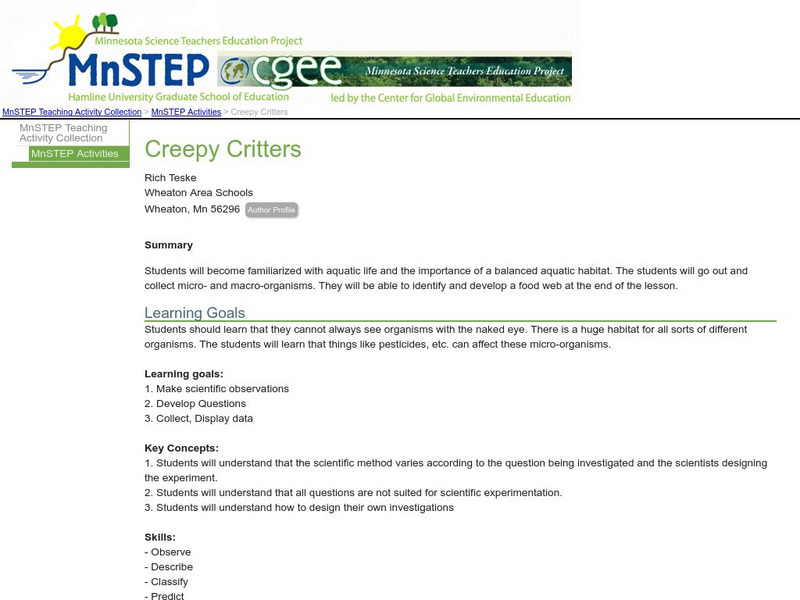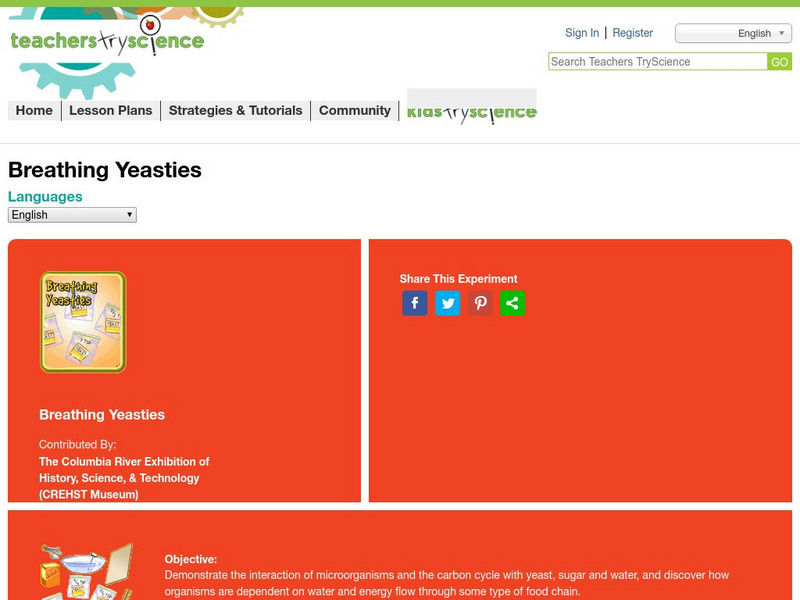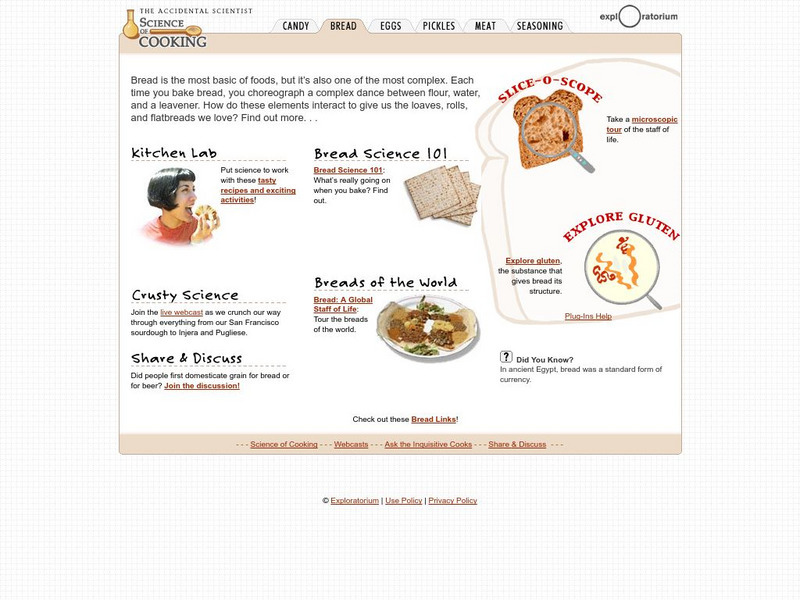Curated OER
Introduction To Brine Shrimp
Fourth graders engage in a variety of activities in order to find information about the brine shrimp. The lesson includes background information for the teacher to deliver instruction. They make observations of the shrimp in different...
Science Buddies
Science Buddies: Effects of Food Preservatives on the Growth of Microorganisms
The problem of protecting food from spoilage has been with us since prehistoric times. The solutions to this problem have changed with advances in technology and knowledge about what causes food to spoil. This project uses liquid...
US Food and Drug Administration
Bad Bug Book: Foodborne Pathogenic Microorganisms and Natural Toxins Handbook
A 292-page downloadable book on foodborne pathogens. Each chapter focuses on a different pathogen or toxin that can cause illness when consumed in food. Each chapter also has a section with an easily understood explanation for consumers....
TeachEngineering
Teach Engineering: Who's Hitchhiking in Your Food?
How can you tell if harmful bacteria are growing in your food? Students learn to culture bacteria in order to examine ground meat and bagged salad samples, looking for common foodborne bacteria such as E. coli or salmonella. After 2-7...
Utah Education Network
Uen: Food Preservation
Major food preservation methods and their relationship to the conditions that encourage or inhibit growth of microorganisms.
TED Talks
Ted: Ted Ed: The Beneficial Bacteria That Make Delicious Food
Erez Garty shows how your kitchen functions as a sort of biotechnology lab, manned by microorganisms that culture your cuisine. [4:39]
TeachEngineering
Teach Engineering: Biosensors for Food Safety
How can you tell if harmful bacteria are in your food or water that might make you sick? What you eat or drink can be contaminated with bacteria, viruses, parasites and toxins pathogens that can be harmful or even fatal. Students learn...
US Food and Drug Administration
Fda: Clostridium Perfringens
Extensive information about the germ clostridium perfringens and associated food poisoning.
Other
Scimat: Foods Under the Microscope
A technical site that describes different types of microscopes and delves into the chemical makeup of milk, yogurt, various various types of microorganisms. Impressive pictures supplement the text. Links to images of microorganisms.
NASA
Nasa Earth Observatory: What Are Phytoplankton? Fact Sheet
Learn about the characteristics of and different species of phytoplankton. Topics highlighted in this article include photosynthesis, global change, and the marine food chain.
BBC
Bbc Schools: Ks2 Bitesize: Science: The Living World
This landing page includes learning modules on the following topics of: animals, plants, microorganisms, life cycles and reproductions, food chains, habits, humans and the environment, adaptation, inheritance, and evolution.
Science Education Resource Center at Carleton College
Serc: Creepy Critters
Students learn about aquatic life and the importance of a balanced aquatic habitat by collecting micro- and macro-organisms. By the end of the instructional activity, they will be able to identify and develop a pond food web.
Teachers TryScience
Teachers Try Science: Breathing Yeasties
See how combining yeast, sugar, and water can demonstrate the carbon cycle and show how microorganisms work in the food chain.
Sumanas
Sumanas Inc: Microbial Life: The Winogradsky Column
Nice animation of how to create a Winogradsky column using bacteria from pond mud. Learn how "mud can be mixed with several ingredients to provide food and other substrates for the bacteria to use" to survive.
Exploratorium
Exploratorium: The Science of Pickles
What is pickling? What role does fermentation play in food? What is salt brine? Understand this and more at the Exploratorium.
Exploratorium
Exploratorium: Science of Cooking: Bread Science and Facts
Find out the science behind making bread. This site from Exploratorium turns your kitchen into a lab and you can do much more than bake bread. Do experiments with yeast, and find out what is so exciting about gluten.














